The global software industry – exemplified by the unparalleled success of American-born innovation – is changing the way we live. Software creates jobs. It sustains vibrant economies. And it enables us to do amazing things by connecting human ingenuity with technology to not only improve how we live our lives every day but also turn remarkable new ideas into reality.
In recent years it’s been a challenge to foster cooperation and deal making in Washington. However, White House and congressional leaders seem eager to change this dynamic and demonstrate they can work together to pass legislation. This week, the General Counsels of BSA | The Software Alliance member companies are coming to Washington to urge action by Congress and the Obama Administration on a bipartisan, achievable, pro-growth agenda focusing on patent reform, government access to private data, and removing trade barriers. These issues don’t require new spending or changes in the tax code. But they are common sense, drive economic growth, and — with the right support – are achievable this year.
The time is now to pass strong patent reform legislation. The unnecessary costs from abuse of the patent litigation system are unacceptably high. Bad actors are bringing suits wherever the money trail leads them, hurting both large and small businesses across industries, like software, retail and manufacturing. Right now, the rules governing patent litigation are so imbalanced that they invite bad actors to abuse the system. Anyone can bring a frivolous patent lawsuit against an innovative company with little, to no, recourse. And they often do.
Patent lawsuits are incredibly expensive, especially for defendants, and these bad actors know this. They bring these frivolous lawsuits knowing that most companies will likely settle rather than fight. Defending what’s right has become too expensive in patent cases, and that’s just plain wrong.
But Congress can fix this. Chairman Bob Goodlatte’s Innovation Act passed the House last Congress 325-91, and this legislation enjoys bipartisan support in the House and Senate today. Enacting legislation like the Innovation Act will lower the cost of patent lawsuits and rebalance those costs so that both the plaintiff and defendant share similar financial risks. This bipartisan legislation will allow businesses across the economy to do what they do best: innovate, produce, hire, research, and add value to our economy.
Efforts to increase protection of individuals’ privacy and increase international trust in the digital economy have also secured broad-based support in Congress. For example, recently introduced bi-partisan legislation by Sens. Orrin Hatch, Dean Heller and Chris Coons — the Law Enforcement Access to Data Stored Abroad (LEADS) Act — would safeguard users’ electronic data and establish a balanced process for how law enforcement can obtain the information it needs, all while respecting the sovereign rights of other countries.
Backed by companies large and small, this legislation strikes the right balance between protecting privacy and giving law enforcement the tools they need to protect the public. Setting clear rules of the road for how governments access data will both help law enforcement and provide confidence to our customers that their private data is secure.
Trade is an equally pressing issue this year. We have the potential to move forward on landmark agreements, like the Trans-Pacific Partnership, that for the first time would set global rules to actively encourage the free flow of data around the world. In order to ensure that these agreements are successfully completed with strong cross-border data provisions, Congress must pass updated Trade Promotion Authority legislation and provide our negotiating partners the confidence to give us their best offers.
But Congress isn’t the only place where action on trade is needed. The Administration needs to act now to ensure software created by US companies has full access to foreign markets and is not discriminated against by other governments. Too many countries around the world are erecting barriers to block trade in software and services. Whether it’s attempts in Brazil to dictate that data must be stored in-country or demands by China to turn over encryption technologies and keys and source code as a requirement for doing business in the country, these discriminatory practices are impacting how countries and people access – and reap the benefits of – the global economy.
The Administration must make removing barriers to market access for data services a top priority in their trade negotiations. And Congress must hold the Administration accountable to ensure the international community hears one, strong message.
As the leading voice for the software industry BSA is pleased that policymakers embrace software in both in their everyday lives and the policies they champion. We hope that Washington will focus on these critical issues this year and take action to support software innovation and the benefits it offers around the world.
This Op-Ed originally appeared on The Hill’s Congress Blog on Monday March 2, 2015.

